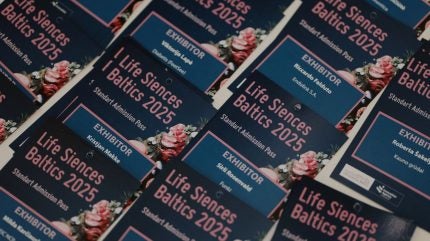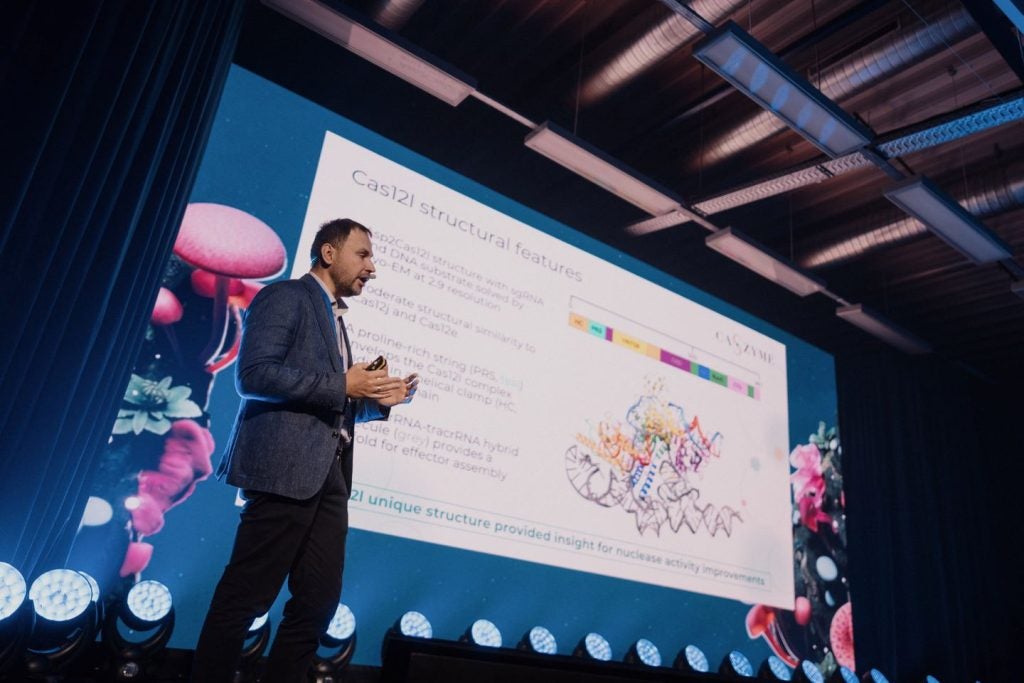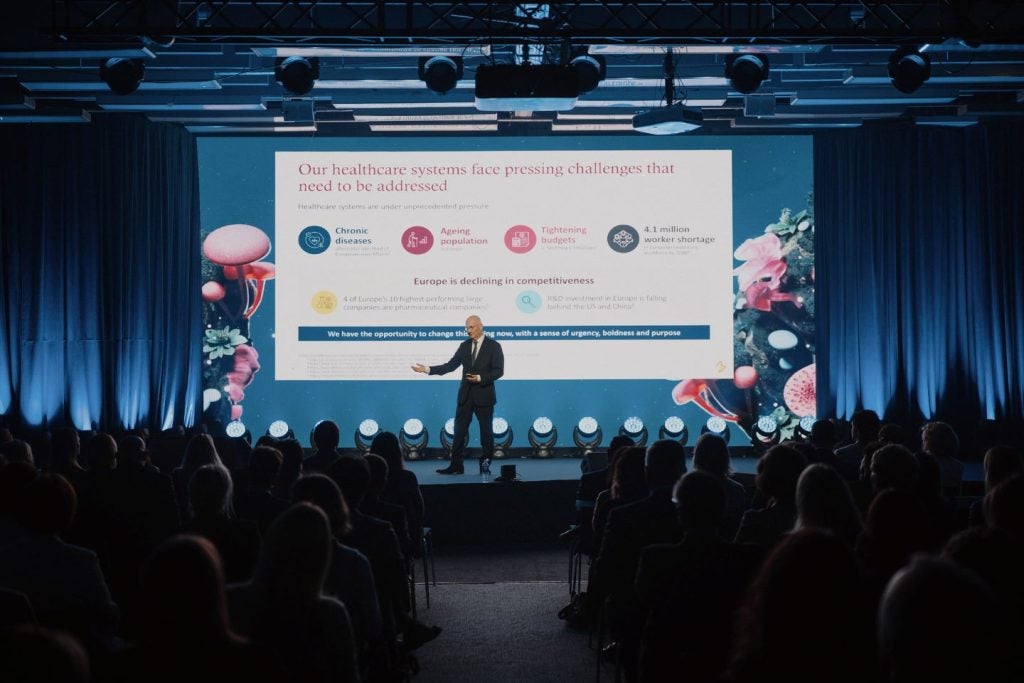

Once best-known on the world stage as a country with a rich basketball history, a sport so deeply ingrained in Lithuanian national identity and culture it is considered by many to be the country’s second religion, Lithuania in the present day is making plays in a different industry altogether – rapidly growing as a leading force in the European life sciences scene.
While Lithuania is a country with a population of just 2.8 million people, it is home to over 400 life sciences companies, involved in areas from gene editing, small molecule disciplines, and mental health R&D.

Discover B2B Marketing That Performs
Combine business intelligence and editorial excellence to reach engaged professionals across 36 leading media platforms.
With the goal to have 5% of the country’s GDP driven by the life sciences industry by 2030, the presence of big players including Thermo Fisher Scientific and Biogen, and continued investment from the likes of Lithuanian life sciences conglomerate the Northway Group, the nation is fast becoming a regional leader in the biotech space.
This year’s Life Sciences Baltics conference revealed the actions Lithuania is undertaking in a bid to punch above its weight on the global life sciences stage. Speakers throughout the two-day event, which took place in Vilnius, Lithuania from 16-18 September, amply demonstrated how companies in Lithuania are driving success in the life sciences industry and how ecosystem partners are helping the region to succeed.
Supporting growth in the Baltics
In recent years, Lithuania, its Baltic country counterparts Latvia and Slovenia, plus Finland, set out to create a joint action plan to support a more integrated life sciences ecosystem across the Baltics.
The Baltic Biotech HUB Action Plan, which was developed under the EU’s BioConnect project, aims to help participants address gaps which may may not be immediately evident within their own local ecosystems and create a shared vision on a wider scale, explains Andrii Shekhirev, co-leader of non-profit the Biocatalyst Foundation, during a session at the conference.

US Tariffs are shifting - will you react or anticipate?
Don’t let policy changes catch you off guard. Stay proactive with real-time data and expert analysis.
By GlobalData“Key ecosystem needs range from talent and research, infrastructure, funding, to intangible aspects, such as regulation and policy and how the general public thinks about life sciences.,” Shekhirev says.
Some of the initiatives the group are working on include scaling infrastructure, articulating how startups within the region can attract investment, and developing the local talent pool in the life sciences sector.
“Across all of these dimensions, we’ve been looking at how we can make each focus more than the sum of its parts,” Shekhirev continues.
“Education, for instance, is not just about educating more people so they can enter the life sciences sector within the Baltics; it’s about how we can meaningfully restructure education. Regarding the research dimension, we’ve been looking at fundamental research, applied research, and also commercialisation, and fundamentally thinking about how we can support more startups based on the innovations that come out of institutions across the Baltics to drive the collective success of the region.”
In its efforts to construct a framework for growing the Baltic regional bio-economy, the group has collected over 2,500 datapoints on 223 organisations within the Baltic biotechnology ecosystem to date, a figure the group estimates makes up over 95% of existing stakeholders in the Baltic region. Shekhirev also highlights that the action group is assessing how it can scale up infrastructure for large and small players within the Baltics’ life sciences ecosystem, with funding a key consideration.
“We are looking closely at how we can improve the quality and access to grants, especially for translational research, and how we can better position the Baltics as a whole for venture capital, family offices and other investors who may be interested in life sciences investment across the region,” Shekhirev says.
Driving advancements in CRISPR

Since being founded in 2017, biotech CasZyme has emerged as one of Lithuania’s biggest success stories in the field of gene editing.
As of August 2025, there are 45 cell and gene therapies approved in the US, with seven of the total approved in 2024. When struggling bluebird bio, the developer of three US Food and Drug Administration (FDA)-approved gene therapy products, including Zynteglo for treating transfusion-dependent beta-thalassemia (TDT), went private for less than $30m earlier this year, some headlines sounded the alarm on the broader cell and gene therapy space. However, observers are not convinced that bluebird’s fate is a signal of broader market decline, but rather express the sentiment that the cell and gene therapy space is currently in a state of correction, opposed to one of disarray.
CasZyme initially focused on R&D of gene editing tools for other companies and has subsequently developed its own Cas12l enzyme platform. Formally established in November 2024, the platform is built around the company’s proprietary Cas12l nucleases.
During a presentation at the conference, CasZyme’s co-founder and chief scientific officer, Giedrius Gasiūnas, shared that the company has now started developing its own pipeline for CRISPR diagnostics and therapeutics. Vertex Pharmaceuticals’ Casgevy (exagamglogene autotemcel) became the first CRISPR-based therapy approved in Europe in 2024. Caszyme’s novel technology could differentiate the company’s work from others in the CRISPR sector.
“For an ophthalmology indication, our enzyme does not cause any toxicity to the cells when delivered at the right level, and this has allowed us to get very high ending activity. We’re now moving towards initiating experiments in vivo,” says Gasiūnas.
“Our other pipeline is related to CAR T cells. Our research so far has demonstrated efficacy in primary patient T cells, with knockout efficiencies of up to 90%.”
Attracting R&D expertise

During a presentation on the main stage, Hans Sijbesma, area vice president for Central & Eastern Europe & Baltics at AstraZeneca, highlighted the advantages of Lithuania’s public-private collaboration culture.
“In Lithuania and across Central Eastern Europe, there’s a willingness to foster such relationships. To ensure the ongoing success of this culture in Lithuania and the wider region, for AstraZeneca, we want a clear strategy of privatisation, long-term commitment, and data sharing, which is going to be extremely crucial towards ensuring we have long-term investments and the ability to support ongoing projects in the life sciences industry,” says Sijbesma.
Sijbesma also highlights that the Baltics and Lithuania are highly digitised countries.
“When I look at some other European countries, I think we can build on that expertise, which is here already, to try to magnify that even further,” he says.
To continue its growth in life sciences, Lithuania’s government is continuing to work on attracting partners from abroad to set up companies in the country.
Jekaterina Kalinienė, head of the BioTech Lab at the Lithuania Innovation Agency, told Pharmaceutical Technology’s sister site, Medical Device Network, that its ongoing ambition is to position Lithuania as a “gateway to the EU market”.
“We like to position ourselves as a compact market, and it has big advantages, because all of the decision-making here is very quick. If you want to establish a company here, it is a relatively straightforward process. For those planning to invest at least €20m ($23.5m), our government creates the whole system of support, which is designed to help companies to, for instance, obtain their relevant permissions more quickly,” says Kalinienė.
In September 2024, Celltechna, the first gene therapy centre in the Baltics, opened in Vilnius. The opening marked the completion of the first building in Bio City, a €7bn ($8.2bn) project spearheaded by Northway Group.
Bio City aims to become Europe’s largest biotechnology campus with plans to create 2,400 new jobs over the next decade. Set to include virology centres, stem cell research facilities, and 3D bioprinting labs, Lithuania is positioning the Vilnius-based campus as a competitor to neighbouring biotech hubs in Uppsala, Sweden, and Copenhagen, Denmark.
Kalinienė concludes: “With all of this infrastructure continuing to grow in Lithuania, including our four technological parks and Bio City, we don’t just want to be an R&D country anymore. We also want to produce.”
Cell & Gene Therapy coverage on Pharmaceutical Technology is supported by Cytiva.
Editorial content is independently produced and follows the highest standards of journalistic integrity. Topic sponsors are not involved in the creation of editorial content.





